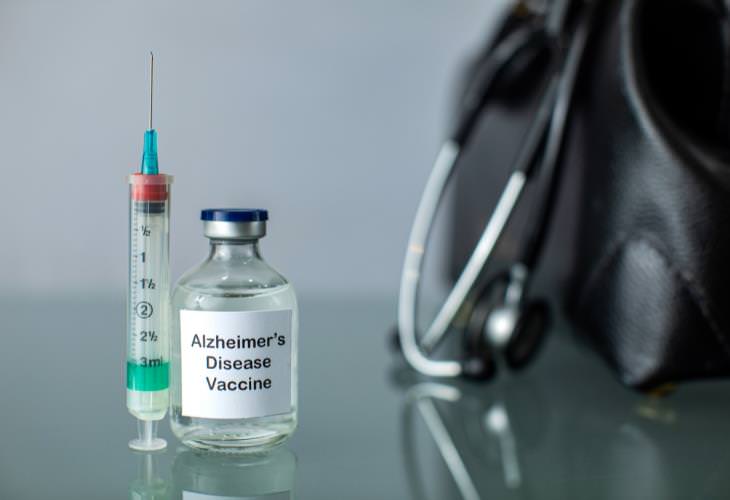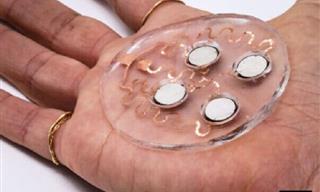Over the last many years, scientists have been working tirelessly on developing effective treatments to prevent or treat Alzheimer’s with mixed results. However, there’s fresh hope on the horizon. According to researchers with Axon Neuroscience, a first-of-its-kind experimental vaccine developed to provide protection against Alzheimer's disease has passed the latest stage of human trials.
The drug candidate, dubbed “AADvac1”, decreased mental deterioration by almost a third, according to the researchers. "No significant effects were found in cognitive and functional tests on the whole study sample," the researchers wrote in their study published in the prestigious British journal Nature Aging.
Let’s find out more about this potentially groundbreaking new development.
What do we know so far?
The trials for this new drug candidate, conducted over 24 months, included 193 patients with mild Alzheimer's. Out of them, 117 received AADvac1 while the others received a placebo, acting as a control group. Interestingly, the participants who received AADvac1 took the peptide-based vaccine in 11 doses and showed high levels of immunoglobulin G (IgG) antibody responses.
The researchers say that the drug works by preparing the immune system to kill rogue tau proteins, the most notable trigger of Alzheimer's disease. Tau proteins usually help nutrient supply, but for some unknown reasons, this protein clumps together in tangles in the brain cells of Alzheimer’s patients, leading to the illness.
“The accumulation and spread of toxic forms of tau in the brain is a pathological hallmark of Alzheimer’s. It is thought to be responsible for the widespread death of neurons that ultimately leads to dementia,” explains corresponding author Dr. Petr Novak, per South West News Service. “Our vaccine aims to halt the formation and spread of tau pathology, which has ultimately the potential to show a higher benefit for Alzheimer’s patients,” says professor Norbert Zilka, chief science officer at Axon.
The antibody response to tau with the help of this new potential vaccine is being deemed “exceptional” by the team of scientists. The vaccine, in fact, slashed clinical and functional decline by up to around 30 percent compared to the placebo group. Furthermore, the study also reported that AADvac1 removes sticky deposits of amyloid-beta proteins that also accumulate in the brains of Alzheimer's patients.
"To the extent of my knowledge, this is the first time that a tau-targeted immunotherapy showed clear evidence of impact on the neurodegenerative process and a strong indication of clinical effect in patients with a confirmed Alzheimer's disease biomarker profile," Petr Novak, first author of the study and the senior clinical research scientist at Axon Neuroscience, told MedPage Today.
The team also said that the most noticeable effects of the vaccine were observed in a subgroup of patients with confirmed Alzheimer’s. This is indeed encouraging news and can be particularly important in treating the elderly as they are more susceptible to Alzheimer's disease.
Fresh hope for the future of Alzheimer’s patients
While the development of this new first-of-its-kind Alzheimer's vaccine offers fresh hope, we have to be mindful of the fact that these results are from a relatively small and early phase II clinical trial. Also, the results have not been corrected for multiplicity testing yet. Moreover, the trials were designed to mainly test the experimental vaccine's safety profile. The drug appears to have been successful on that count as it was shown to be safely tolerated by patients.
We will, however, need a larger trial involving more patients to see if AADvac1 can successfully treat cognitive decline in patients. Particularly those whose dementia is linked to tau pathology.
Thankfully, larger trials are now being planned, focusing on patients with tau and amyloid biomarkers, to further test the clinical efficacy of the drug and to replicate the results. If it works out successfully, there’s hope that the vaccine might provide symptomatic relief to patients and even prevent the disease altogether.
“The results confirm the disease-modifying effect and support Axon’s progress toward a pivotal stage of clinical development. In view of the recent approval of amyloid-based therapy, our strong NfL endpoint results could serve as a surrogate in our forthcoming clinical development to achieve accelerated approval," says Michal Fresser, CEO of Axon Neuroscience.
What’s encouraging is that Axon has a huge team that’s dedicated exclusively to tau research. They have published plenty of evidence over the last two decades indicating that tau is the primary trigger of Alzheimer’s disease. So, even though we have many questions about AADvac1, and rightfully so, there’s every possibility that this new development can lead to something positive.
Let’s now hope that future clinical trials with AADvac1 reveal clearer evidence of its efficacy in alleviating Alzheimer's.
Share this news with your friends and family!
 Go to BabaMail
Go to BabaMail



























